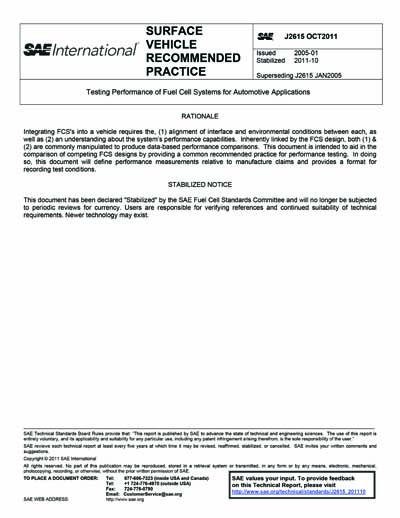Most recent
SAE J 2615-2011 (SAE J2615-2011)
Testing Performance of Fuel Cell Systems for Automotive Applications ( Stabilized: Oct 2011 )
This document has been declared 'Stabilized' and will no longer be subjected to periodic reviews for currency. Users are responsible for verifying references and continued suitability of technical requirements. Newer technology may exist. This recommended practice is intended to provide a framework for performance testing of fuel cell systems (FCS's) designed for automotive applications with direct current (DC) output. The procedures described allow for measurement of performance relative to claims by manufacturers of such systems with regard to the following performance criteria: power; efficiency; transient response; start and stop performance; physical description; environmental limits; operational requirements; and integration. Since this recommended practice is based on the principal of performance measurement relative to a claim, the testing parties should take care to include any qualifying or unique circumstances leading to the test results reported in order to achieve full disclosure. For example, efficiency as defined in section 3.1.9 allows for the inclusion of thermal output benefit. If a test result is reported which takes advantage of this allowance this stipulation should be noted with the efficiency figure and the useful purpose of the thermal output (e.g. cabin heating) should be made clear.
Content Provider
Society of Automotive Engineers [sae]






